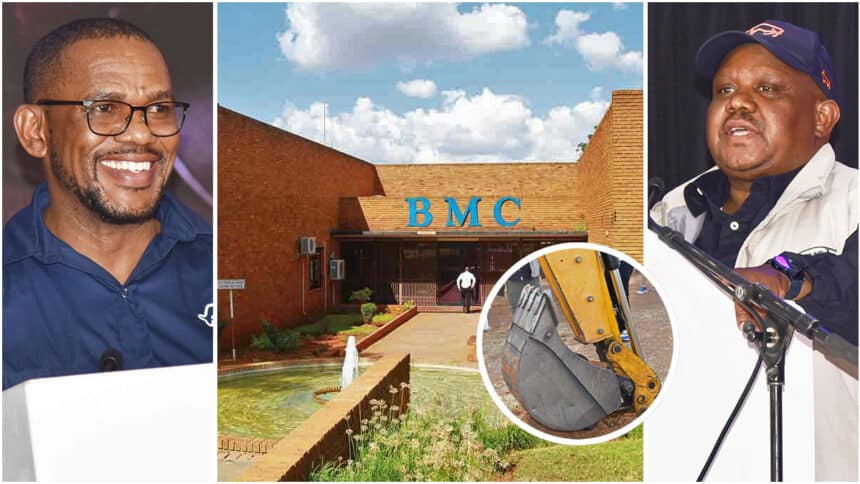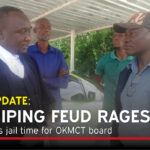P350 million projects on Meat Commission’s menu
Botswana Meat Commission (BMC) are planning to beef up their operations, with a number of big scale projects sizzling away in the frying pan.
Over the next 18 months, the parastatal intends to build a brand new ‘meat value addition and secondary processing plant’ and also breathe new life into its long-dead tannery.
Anticipated to cost P230 million, if all goes to plan, the state-of-the-art 3, 000 square metre facility will allow BMC to diversify its offerings by producing premium, value-added meat by-products.
To begin with, the plant will initially process ten new foodstuffs, which will be available in the local and regional markets.
When fully-functional it will have the capacity to manufacture up to 100 metric tonnes of processed meats such as ECCO canned foods, retail-pouched beef cuts, cured meats such as biltong, sausages, polony.
Speaking at Thursday’s ground-breaking ceremony at their Lobatse headquarters, BMC Chief Executive Officer (CEO), David Tsheboeng said this was a pivotal moment in the meat commission’s 59-year history.
He noted the project was not only critical to BMC’s survival, but more importantly, to the sustainability and future of the Botswana beef industry.
“For many decades, the BMC has been a cornerstone of Botswana’s economy, recognised for delivering high-quality beef to international markets. However, as the global meat market continues to evolve, so must we. The need for greater diversification and innovation in our product offerings has never been more pressing. These projects mark a significant step towards positioning Botswana as a more dynamic and competitive player in the global beef industry,” declared Tsheboeng.
For his part, Minister of Entrepreneurship, Karabo Gare buzzed with excitement at the fresh possibilities the factory will create.
“By producing a broader range of high-quality products, we will not only increase our global competitiveness but also create more income opportunities for local farmers and entrepreneurs across the beef value chain. Moreover, these play a pivotal role in our value chain systems, they open doors for future advancements and strengthening our position in the global market. It remains an utmost priority to ensure that equitable benefit from selling cattle to the BMC is extended to the critical mass – local base producers,” said Gare.
As for BMC’s second sizeable undertaking, they intend to ‘revitalize’ the old tannery, which has been inactive since 2006, with P120 million set aside for the restoration effort.
Once up and running, the tannery will allow processing of hides to the wet-blue leather stage (in this phase, the leather is tanned, but not dried, dyed or finished), with the aim of creating a sustainable market for leather products.
Gare is confident localizing tanning of hides and skins into high-value leather goods will lay the foundation for the Lobatse Meat & Leather Park, which in turn will attract investors to further process wet-blue leather into finished goods such as shoes, bags, jackets and car seats.
For his part BMC Acting Board Chairman, Dr Benjamin Radihephi admitted it has been a difficult few years for the meat commission, typified by dilapidated infrastructure and sub-optimal financial and operational performance.
Fed-up farmers have increasingly lost confidence in the entity, with several choosing to export their own cattle instead, leading to a loss of market share for BMC.
“We realized that while we had many assets, the state of some, rendered them obsolete and as such could no longer be relied on for a desired BMC turnaround. The main plant, the cannery, tannery – all of them had been in a sorry state of disrepair, and acutely contributed to BMC losses given their high- running costs,” explained Dr Radihephi, adding he is confident such problems will now be a thing of the past.
BMC’s cannery and tannery plants were constructed and commissioned in 1978, when the commission first sought some level of business integration.
Since then, BMC’s value-addition has reduced to next to nothing, to the point that today it is extremely rare to find ECCO canned products on shop shelves.
This is largely due to the passing of time, with the aging plants and equipment no longer as efficient or reliable as they once were.

















